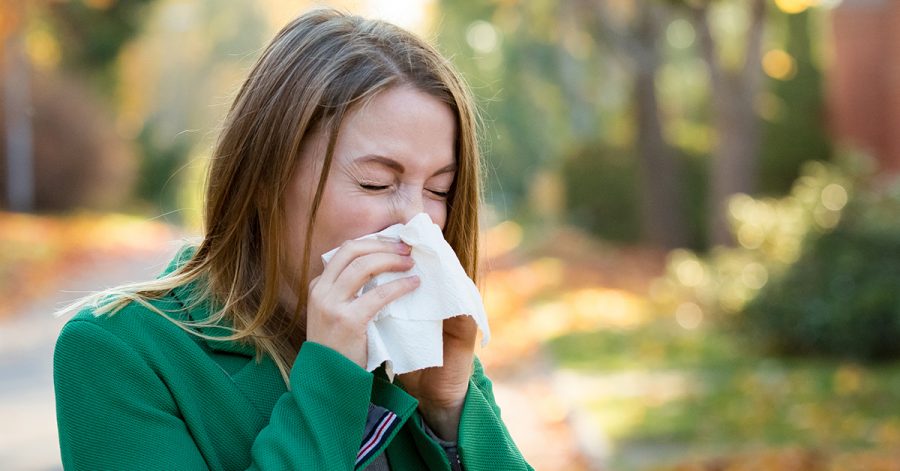Winds of change blowing for sneezes
Opportunity to spice up cough & yawn courtesies reveals itself in COVID-19 pandemic
March 25, 2021
You are seated at the lunch table with a full plate of delicious food from the cafeteria while crowds of bustling students bump into each other as they seek to find enticing entrees similar to those you have selected. As you bring a steaming hot cheeseburger up to your mouth, you take a pause halfway up. Your best friend is about to do something remarkable which is going to require a personal response from you. While you watch his face curl up, seemingly in anticipation of the massive amount of recoil which is bound to accompany what may very well be the sneeze of all sneezes, you prepare a response with an almost equal degree of vigor. Your reply will most likely be the classic “God bless you,”maybe the oh-so sophisticated “gesundheit” – or you could even really mix it up with a “salud!”
In all honesty, you have a nearly endless supply of options that can relieve your friend’s intense burden of a sneeze. I am fairly certain that there is some sort of response in nearly every language that can tend to such a moment. It is fascinating to see that the vast amount of available translations within different languages all revolve around either health or God. After doing a tad more research, it seems that the concept of giving a prepared response to someone who has sneezed goes all the way back to the year 500 BC and originated on the Indian subcontinent.
Consider the grand anthropological tradition behind the act of blessing someone after their sneeze. If you replay the previously portrayed scene in which your friend is about to sneeze, you suddenly have access to the endless reserve of ancestral “bless-you’s” that have preceded this shining moment. But, let’s say that this time, your friend does not sneeze, but instead coughs or yawns. In witnessing either of the two acts, the moments which follow are bound to be awkward, silent and, most notably, devoid of any pre-generated cultural response to either of those human phenomena. This is the gaping vacancy that I would like to address and then appeal to the reader for a solution.
How is it that in the 2,500 or so years in which humanity has been yawning, coughing and sneezing, we have created such a gross disparity between the three? Is a sneeze really all that more important than a cough or a yawn? I could perhaps see why a yawn could, potentially, be placed at the bottom of the list given that it is an indication that one is tired rather than being sick. However, especially after what we’ve experienced during the COVID-19 pandemic, a cough absolutely warrants some sort of space within the world of courteous responses. Yet, even though sneezing, coughing and yawning are equally involuntary human expulsions, the sneeze has somehow bullied the other two out of their deserved place within the shared linguistic history of our species.
Although this fact is incredibly distressing, my initial feelings of anguish were eased once I realized the monumental opportunity that is being presented to us. Folks, we have all been given the chance to create two new phrases or expressions that can fill this terrible hole in our linguistic foundation. The purpose of this article is not so much to complain about the reality in which we currently inhabit — which has completely forgotten about coughs and yawns. I am drawing attention to this issue because I want to encourage the reader to think of some potential phrases or words that we can either invent or recontextualize in order to relieve the silence after yawning or coughing.






















